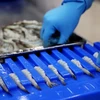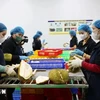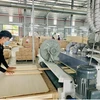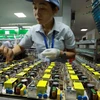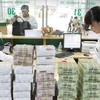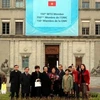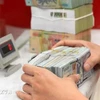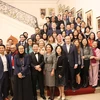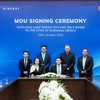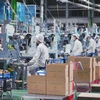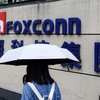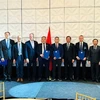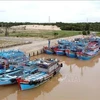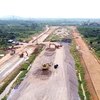Since the normalisation of relations 20 years ago, the US has built its share in Vietnamese market towards becoming the country’s top investor, considering the huge potential of the impending Trans-Pacific Partnership agreement and the birth of the ASEAN Economic Community later this year.
Just two decades ago, the US foreign direct investment (FDI) flow to Vietnam was non-existent. Several US multi-national conglomerates, though they considered Vietnam a promising market, had to do business indirectly through a third country.
After US President Bill Clinton declared a full lift of the embargo on Vietnam on July 12, 1995 and the bilateral trade agreement was signed in 2000, US inflows into Vietnam have come in droves.
Giants operating in beverages, information technology, software, automobiles and energy such as Coca-Cola, PepsiCo, P&G, IBM, Cargill, Microsoft, Ford, Chevron and UPS, one after another, injected huge amounts of capital into Vietnam and reaped successes.
Globally popular brands Coca-Cola and PepsiCo have been taking the beverage market by storm over the past 20 years.
P&G has increased their investment three-fold in Vietnam since 1995 and recently broke ground a factory last March, which will churn out Gillette razors for export across Asia.
Microsoft owns a mobile phone manufacturing plant worth over 300 million USD in the northern province of Bac Ninh.
Chipmaker Intel, after relocating its Costa Rica manufacturing operations to Vietnam, is also considering moving its Malaysian main-board and microprocessor factories to Vietnam and other countries.
US investments are catapulting Vietnam into a technology investment destination.
As of this May, the US had 742 projects valued at over 11 billion USD in Vietnam, ranking seventh of 101 investors in the country.
Sitting down with a reporter from Cong Thuong (Industry & Trade) newspaper, Chairman of the American Chamber of Commerce Gaurav Gupta said the Vietnamese government should continue regulatory reform and improving business climate and workforce quality.
US firms valued the Vietnamese Government’s efforts to control exchange rates, increase gross domestic product and improve policies, saying continued progress in these fields will fuel further US FDI inflows to Vietnam.-VNA
Just two decades ago, the US foreign direct investment (FDI) flow to Vietnam was non-existent. Several US multi-national conglomerates, though they considered Vietnam a promising market, had to do business indirectly through a third country.
After US President Bill Clinton declared a full lift of the embargo on Vietnam on July 12, 1995 and the bilateral trade agreement was signed in 2000, US inflows into Vietnam have come in droves.
Giants operating in beverages, information technology, software, automobiles and energy such as Coca-Cola, PepsiCo, P&G, IBM, Cargill, Microsoft, Ford, Chevron and UPS, one after another, injected huge amounts of capital into Vietnam and reaped successes.
Globally popular brands Coca-Cola and PepsiCo have been taking the beverage market by storm over the past 20 years.
P&G has increased their investment three-fold in Vietnam since 1995 and recently broke ground a factory last March, which will churn out Gillette razors for export across Asia.
Microsoft owns a mobile phone manufacturing plant worth over 300 million USD in the northern province of Bac Ninh.
Chipmaker Intel, after relocating its Costa Rica manufacturing operations to Vietnam, is also considering moving its Malaysian main-board and microprocessor factories to Vietnam and other countries.
US investments are catapulting Vietnam into a technology investment destination.
As of this May, the US had 742 projects valued at over 11 billion USD in Vietnam, ranking seventh of 101 investors in the country.
Sitting down with a reporter from Cong Thuong (Industry & Trade) newspaper, Chairman of the American Chamber of Commerce Gaurav Gupta said the Vietnamese government should continue regulatory reform and improving business climate and workforce quality.
US firms valued the Vietnamese Government’s efforts to control exchange rates, increase gross domestic product and improve policies, saying continued progress in these fields will fuel further US FDI inflows to Vietnam.-VNA
